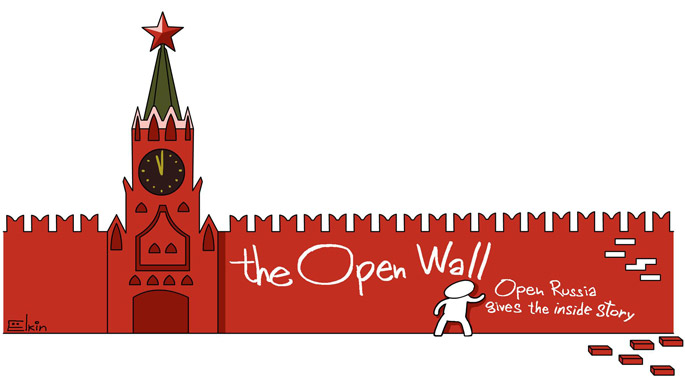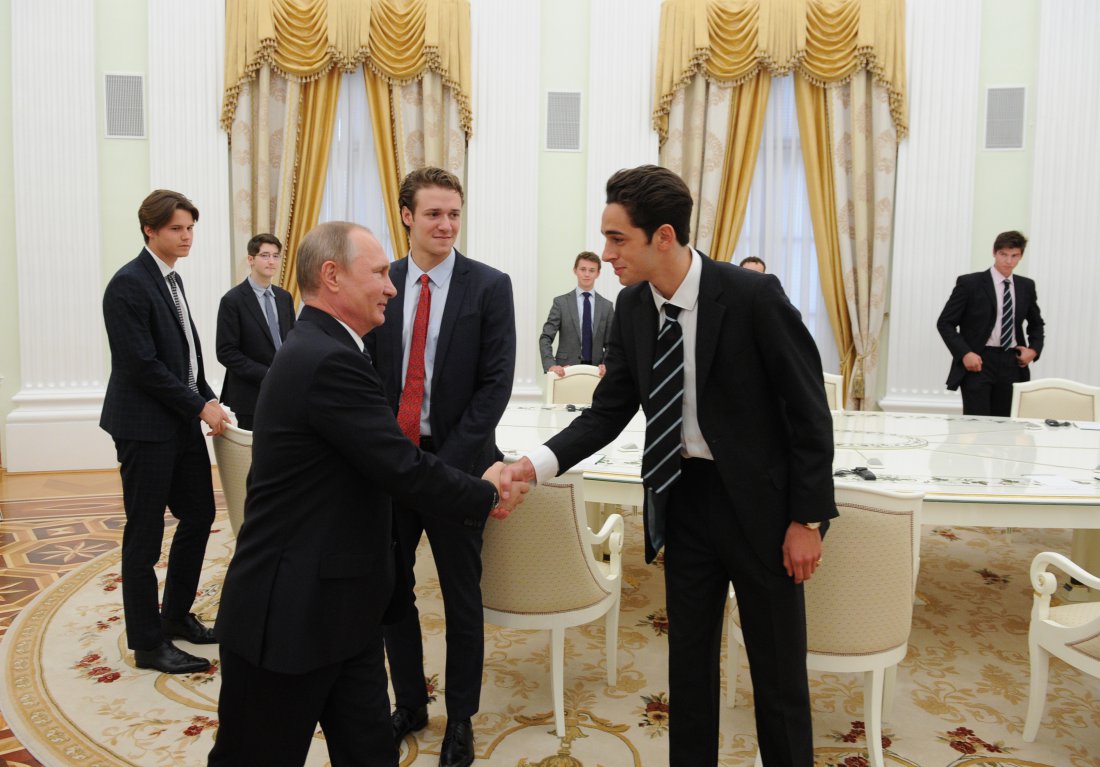Eton pays court to Vladimir Putin

Eton pays court to Vladimir Putin
Vladimir Putin’s recent meeting at the Kremlin with eleven young men from “Slough Comprehensive” was a remarkable event, especially for the awestruck Etonians. But what was in it for Putin?

For the Eton College men, it was a rare adventure, a quest in the old spirit of derring-do British imperialism, culminating in an audience with the Russian tsar. As for Putin, unused to “simple” European folk, he soon had his young courtiers spellbound.
Russian leaders do not normally do unscripted meetings with youngsters. In 2011, for example, during a visit by then President Dmitry Medvedev to the Journalism Department of Moscow State University, students armed with awkward questions were detained by federal officers. The role of “ordinary” students was played by pro-Kremlin activists, with “proper” questions.
This is what one Runet user has to say about a meeting between Putin and Tomsk students in January 2012: “My friend told me how they (the students) were selected for the meeting: one group to show solidarity, another for the crowd scene, and a third to ask the actual questions, with strict instructions to toe the line on pain of expulsion and blacklisting.”
Interestingly, the Etonians were also briefed before the meeting with Putin – but only because they asked to be. Former Eton teacher Peter Reznikov recalls how the pupils took counsel with him as to what they “could and could not ask Putin.” Mr Reznikov advised them “to be as friendly as possible, and not to irritate the president.” Yes, that was good advice. He really doesn’t like to be irritated.
The historic encounter was made possible thanks to the mediation of Archimandrite Tikhon Shevkunov, rumoured to be Putin’s “spiritual confessor” (which, we’re thinking, must be quite a tough job). In March, the priest gave a talk at Eton, after which the boys probed the idea of meeting the Russian president. How could Father Tikhon refuse? But, given that six months elapsed between Tikhon’s visit and the Kremlin rendezvous, and that David Wei – the Etonian man who put the trip together – let slip on Facebook that it all took 10 months to set up, one can assume the “extra” time was spent on luring Bishop Tikhon to Eton in the first place, suggesting a chess-like combination of moves.
The audacity of the plan caught the eye of Russian historian and journalist Sergei Medvedev: “Britain’s elite students are fond of such stunts. Oxbridge history is full of them: taking apart the dean’s car and reassembling it on the college roof; riding naked in the underground; phoning Kim Jong-un; meeting President Putin. And our guys were drooling at the propaganda coup, an end to the isolation, a new Cambridge Five. The Kremlin used them very subtly.”
This was not quite how many people over here saw it. Let’s face it: Etonians don’t have the best reputation – I mean, let’s not forget that Brexit is an Old Etonian gamble gone wrong. Many of the comments, responding to the “Etonians defect to Moscow” story, were unprintable – and unrepeatable – certainly in a respectable column such as this.
The interest was by no means one-sided. After 16 years in power, Putin could be forgiven for thinking that the West is populated exclusively by presidents, prime ministers and captains of industry. And then, suddenly, he finds himself in a room full of … well, that’s the biggest question of all: who did he think they were? Well dressed, polite schoolboys? Future spies? Future tutors to the sons and daughters of the Russian elite desperate to send their children to a good British public school (like Eton), and a house in Hampstead?
For Putin, it was manna from PR heaven – perhaps as good as his birdman act in Siberia. The Russian president clearly felt a rapport with his guests. But then again, Eton and the KGB are quite similar – in the sense that no one ever really leaves.
Of course, Etonians can’t ever escape their reputation, not even in Moscow. Like many Westerners, Russians joked that Putin, remembering his training, was out to “recruit” his listeners.
But there is no doubting the effect that the Tsar had on his supplicants.
Hugo Engel: “What we learned is that he’s a human, he’s personable, he’s warm, and he’s intelligent … My impression is so different from how Putin is portrayed in the West.”
Marc Woernle: “We were all very impressed by him, and not only his presence, but particularly that he was able to remember everything about anything: states, statistics, what someone said to him fifteen years ago and things like that. His memory was really impressive.”
Joss Tricks: “During our two-hour meeting I was struck by his profoundness, his humour and his willingness to listen to us.”
Usually, at the end of this column, we like to say something witty that has you smiling, that brightens up your day. But at this moment all we want to do is cry.



